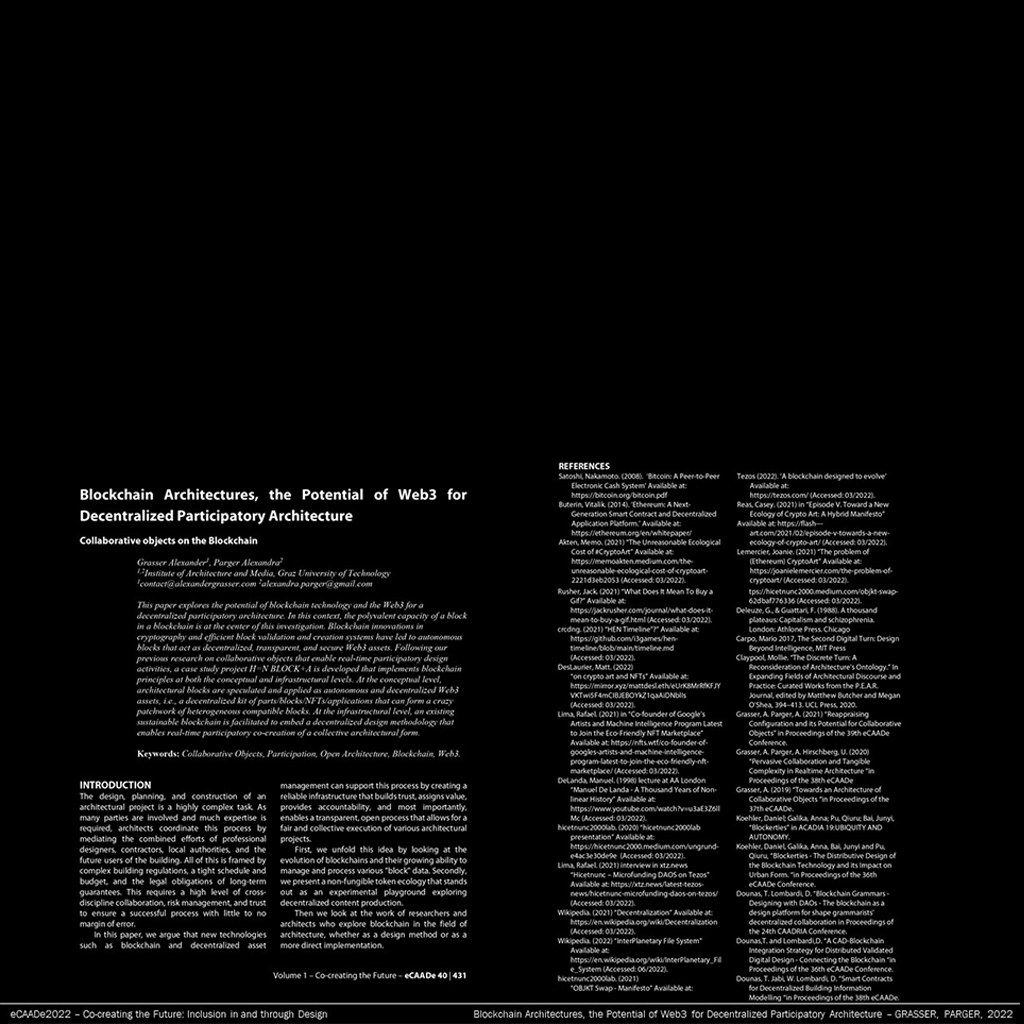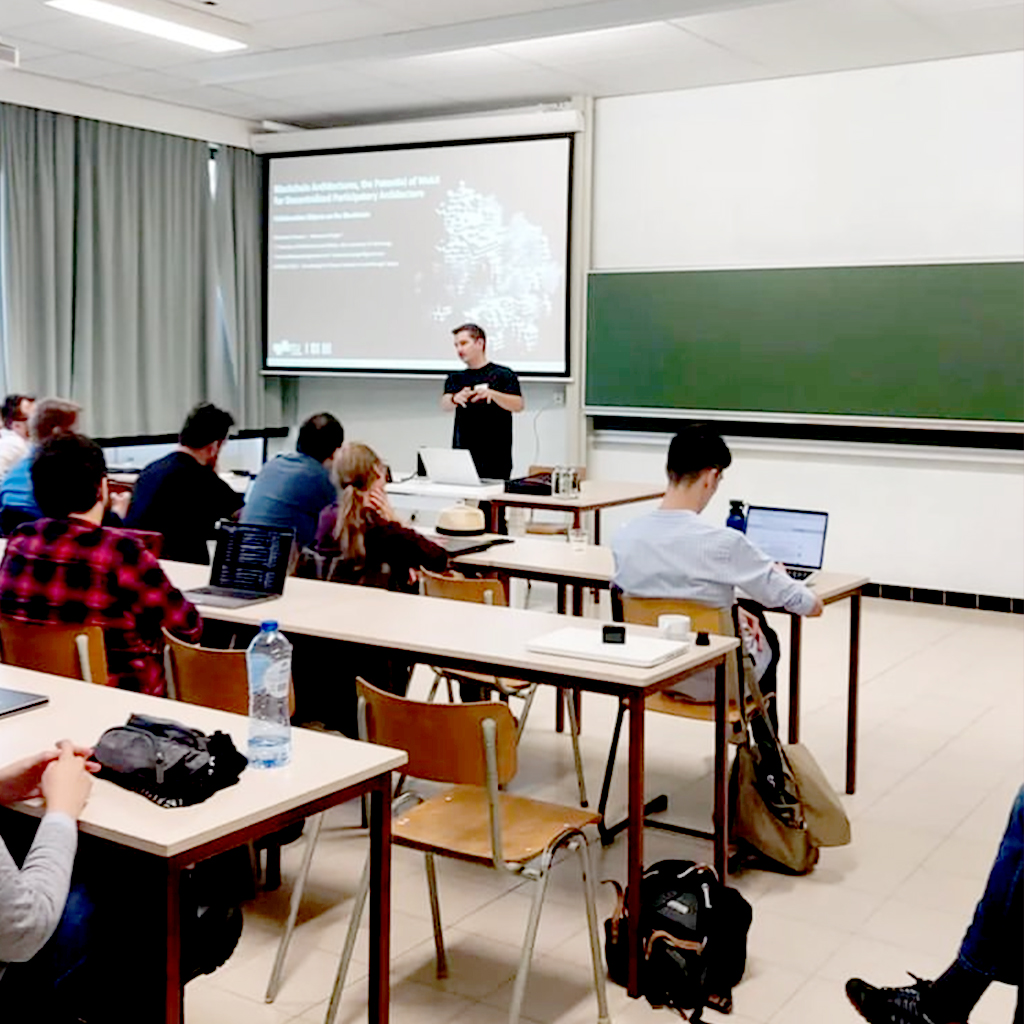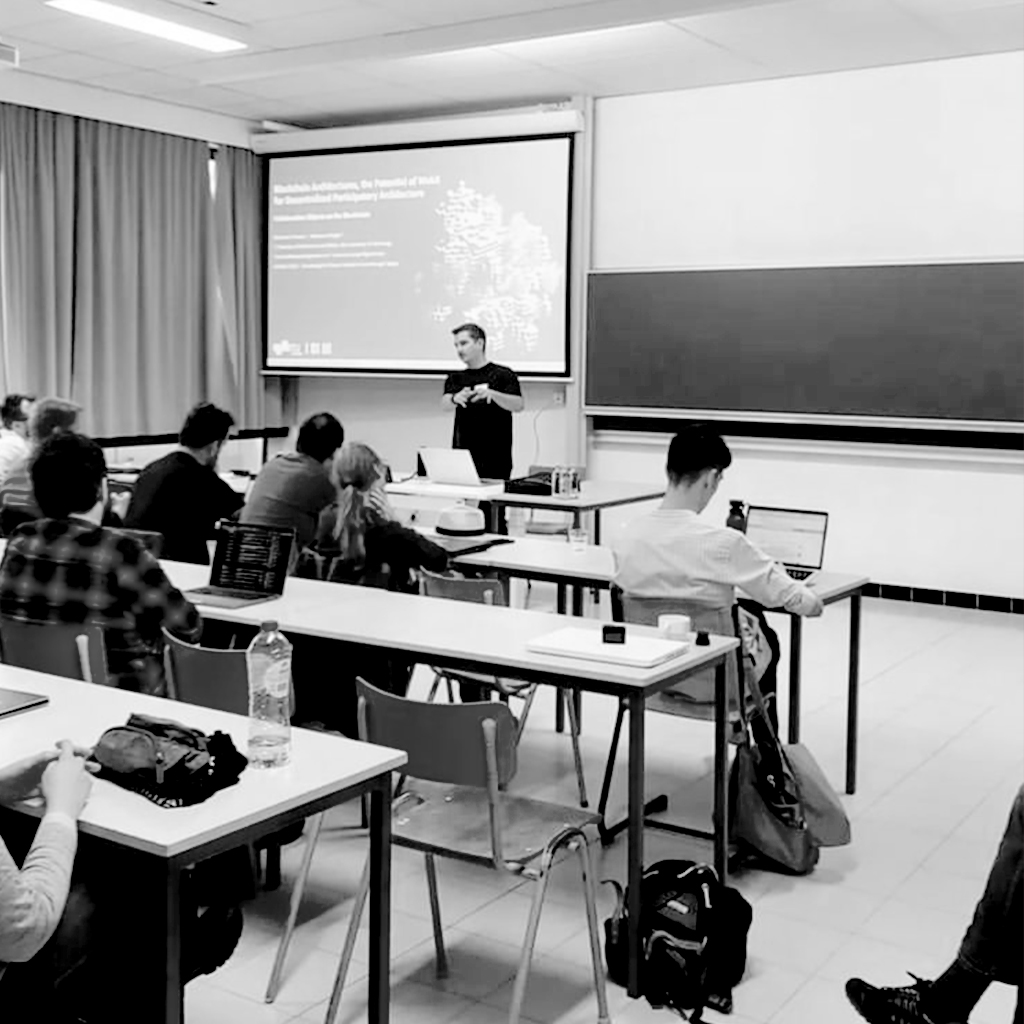




LECTURE
14.September 2022
@ECAADE 2022 Conference
“Blockchain Architectures, the Potential of Web3 for Decentralized Participatory Architecture”
Full Paper Presentation, Authors: Grasser Alexander, Parger Alexandra
ECAADE 2022, Session 1.2.3: ‘Pardicipatory design’.
13.09.- 16.09.2021, Ghent, Belgium.
Link to Paper: ECAADE2022
Conference Theme: [text form the conference website]
Co-creating the Future: Inclusion in and through Design
“Spatial design is becoming an increasingly social, participatory and inclusive practice. In the last decade, ordinary people all around the world have started to claim a shaping power over the processes of urbanization; over the ways in which our cities are made and remade (Harvey, 2013). There has been a resurgence in the number of do-it-yourself cooperatives initiated by non-designer citizens, activists, artists and designers.
In parallel to these developments, a plethora of social technologies, tools and platforms have been developed to include a variety of stakeholders in the architectural design, urban design, planning and decision making processes. Crowdsourcing and crowdfunding applications started to be widely used to tap into the wisdom of the crowd. Novel developments in parametric design and digital fabrication created possibilities for user participation in the making of customized and highly diversified products. With the combination of artificial intelligence and the Internet of Things; smart buildings, autonomous devices, robots and software started to transform into agents and active participants. The attempts to harness collective human and artificial intelligence opened up new avenues for combining practice, research and education.
On the other hand, there is a growing concern over the possible negative impact of the digital devices, tools, platforms and agents integrated in the making of our buildings and cities, public, private and collective spaces. Examples of those are the potential exclusion of vulnerable and disadvantaged citizens, transfer of citizen power to the corporations, privatization of personal life and data, as well as spatial exclusion through increased technological control and surveillance.
In this context the main questions to be addressed in this conference are:
• What are the potential roles of emergent devices, platforms, agents and designers in the co-creation of spatial design products?
• How can we harness collective human and artificial intelligence in spatial design in an inclusive and ethical manner?
• What are the challenges of these practices and the future directions for addressing them? ”
see further information on the conference: kuleuven.ecaade2022.be
“Blockchain Architectures, the Potential of Web3 for Decentralized Participatory Architecture”
Full Paper Presentation, Authors: Grasser Alexander, Parger Alexandra
ECAADE 2022, Session 1.2.3: ‘Pardicipatory design’.
13.09.- 16.09.2021, Ghent, Belgium.
Link to Paper: ECAADE2022
Conference Theme: [text form the conference website]
Co-creating the Future: Inclusion in and through Design
“Spatial design is becoming an increasingly social, participatory and inclusive practice. In the last decade, ordinary people all around the world have started to claim a shaping power over the processes of urbanization; over the ways in which our cities are made and remade (Harvey, 2013). There has been a resurgence in the number of do-it-yourself cooperatives initiated by non-designer citizens, activists, artists and designers.
In parallel to these developments, a plethora of social technologies, tools and platforms have been developed to include a variety of stakeholders in the architectural design, urban design, planning and decision making processes. Crowdsourcing and crowdfunding applications started to be widely used to tap into the wisdom of the crowd. Novel developments in parametric design and digital fabrication created possibilities for user participation in the making of customized and highly diversified products. With the combination of artificial intelligence and the Internet of Things; smart buildings, autonomous devices, robots and software started to transform into agents and active participants. The attempts to harness collective human and artificial intelligence opened up new avenues for combining practice, research and education.
On the other hand, there is a growing concern over the possible negative impact of the digital devices, tools, platforms and agents integrated in the making of our buildings and cities, public, private and collective spaces. Examples of those are the potential exclusion of vulnerable and disadvantaged citizens, transfer of citizen power to the corporations, privatization of personal life and data, as well as spatial exclusion through increased technological control and surveillance.
In this context the main questions to be addressed in this conference are:
• What are the potential roles of emergent devices, platforms, agents and designers in the co-creation of spatial design products?
• How can we harness collective human and artificial intelligence in spatial design in an inclusive and ethical manner?
• What are the challenges of these practices and the future directions for addressing them? ”
see further information on the conference: kuleuven.ecaade2022.be
Content Copyright:
all rights reserved to
ALEXANDER GRASSER
all rights reserved to
ALEXANDER GRASSER